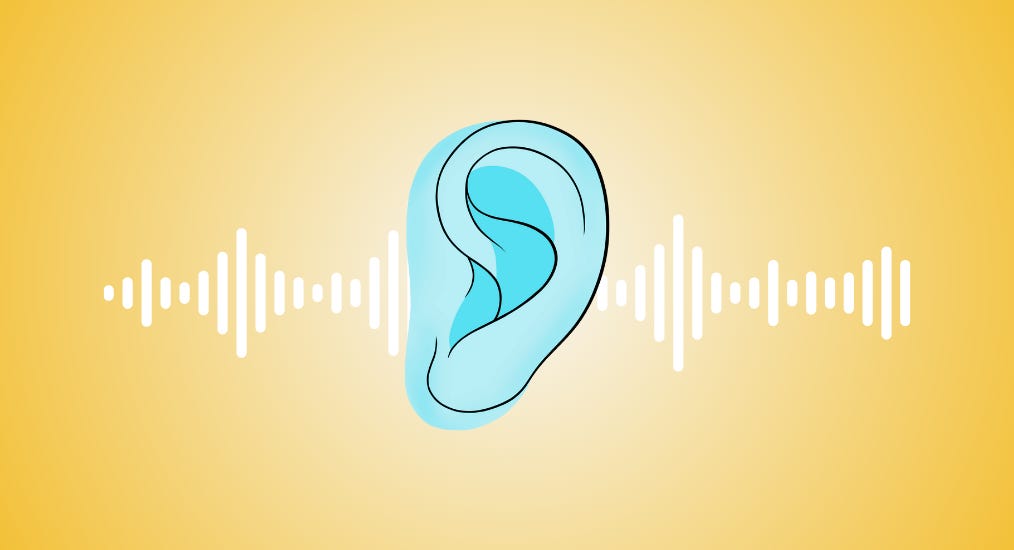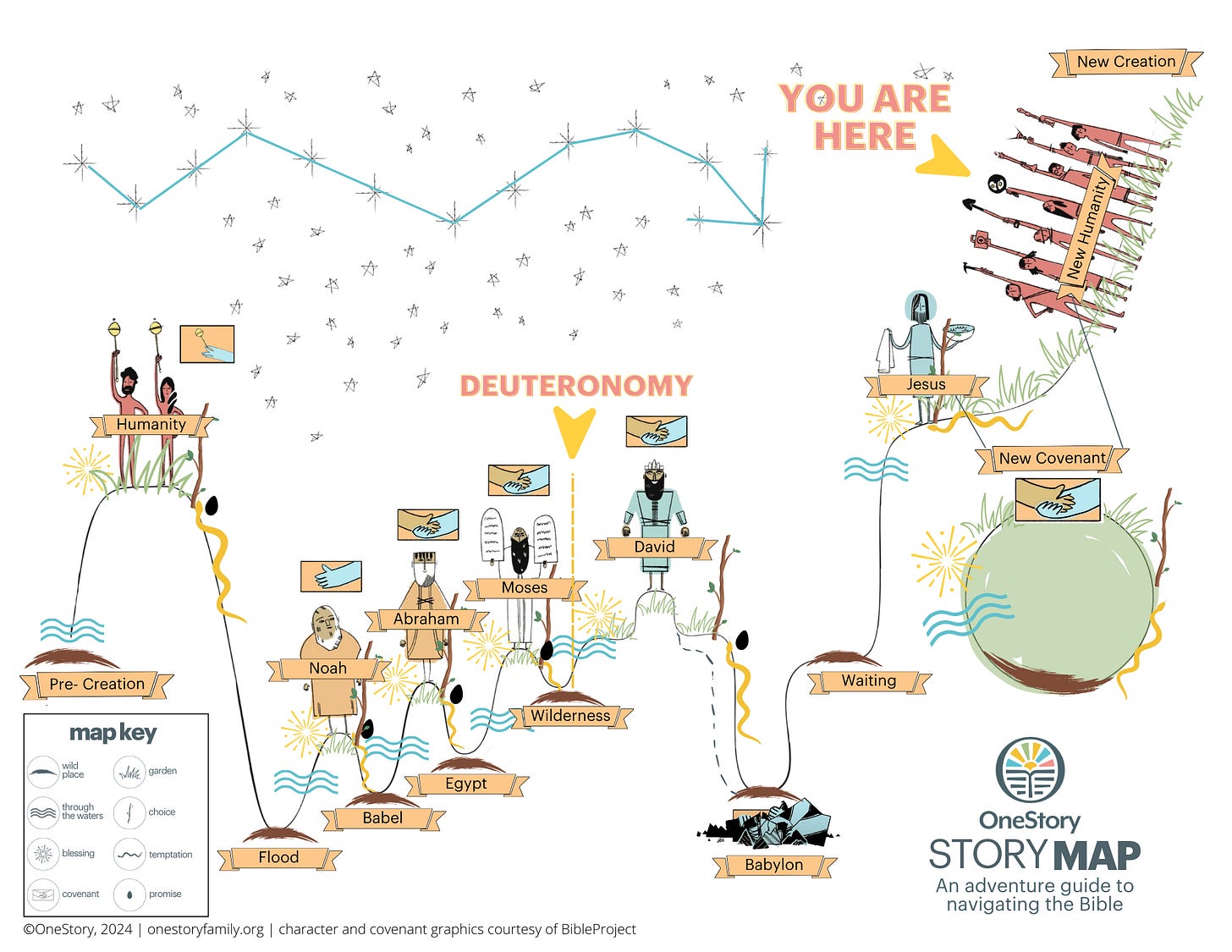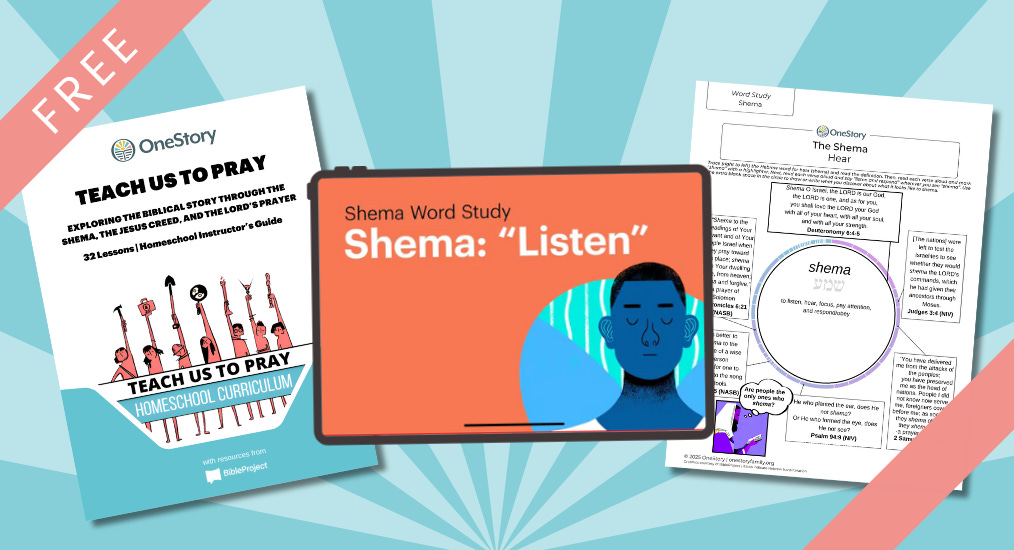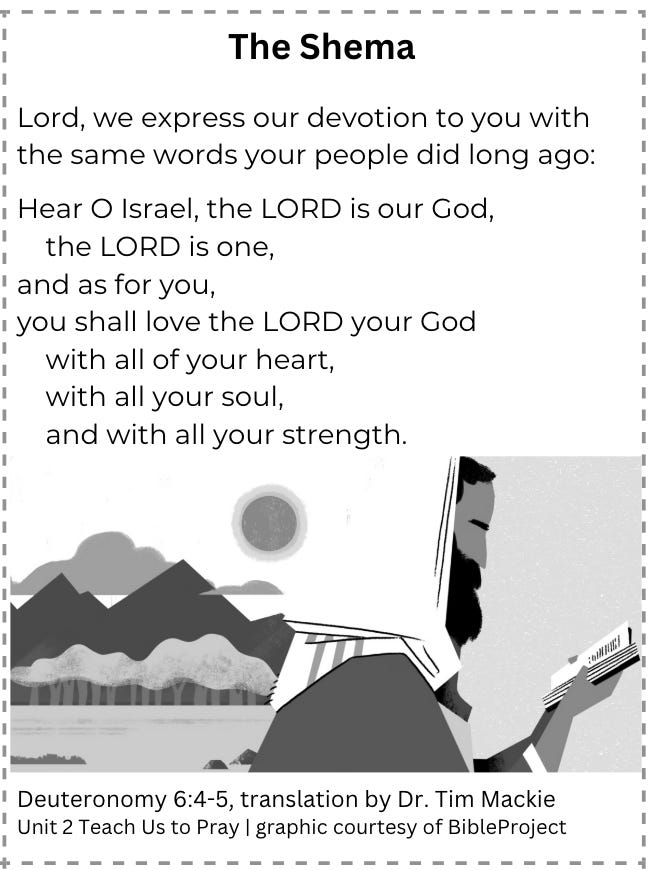When God asks us to listen, He doesn’t call to us from far away.
I recently remembered a loud problem that emerged when three kids between the ages of one and five bounced off the walls of my home. My middle daughter (age 3 at the time) got into the habit of shouting. A lot.
Yes, I know that "a lot” was redundant. My nervous system evidently still hasn’t recovered.
Sometimes she screamed out of frustration that her clumsy little hands wouldn’t do what she wanted them to do. But at other times, she simply shouted her communications: “I’m hungry!!!” “I don’t want to!!!” “Let’s watch Wild Kratts!!!”
I couldn’t figure it out.
And then I heard myself talking to her.
I was in the kitchen, and she was playing in the living room. I called her name to get her attention. But lost in her world of Lalaloopsy dolls and Wild Kratts figurines, she didn’t respond. She didn’t even stop playing. So I called her name again, more loudly this time. Still no response. By the time she finally looked up, I was, yes, yelling her name in frustration. Naturally, when she finally heard me, she hollered her response.
That’s when I realized with horror that her little voice had been mirroring what it heard in mine.
Lost in my world of dishes and diapers, I had called from my world instead of walking 15 feet and lowering myself into hers. And when she didn’t hear me, I started shouting. This shouting was new for me. I hadn’t been a shouter with two kids. Unfortunately, the mounting pressures with the third had evidently set my patience over the edge.
At that moment, I began to wonder how many of her shouts were a response to what she heard. I wondered if she didn’t hear me because I was too far away from her and her world.
So I started being more intentional about coming close whenever I spoke with her.
Coming close to speak to us. That’s exactly what God does when He asks us to listen.
The Big Listen
It’s the fortieth year after God rescued the Israelites from Egypt, and Moses is giving his farewell address (aka the book of Deuteronomy).
When we consider the big story God is telling, here’s where Deuteronomy is compared to where we are:
Note that the Israelites are near the end of their time in the wilderness and are getting ready to cross the Jordan River into the promised Garden-land. Moses words are like a compass pointing them back to their partnership with God.
Right after Moses reminds his enormous extended family of the agreement God made with them, he becomes downright fixated on the concept of hearing and listening to God. For Moses, that meant saying the word shema a lot. He uses it eight times in six consecutive sentences.
See all of those highlighted words? They’re all translations of a variation of shema.
The first six times, it’s about hearing God. The last two times, Moses turns it around to reflect on God hearing His people. And, of course, the whole Exodus began with God hearing the groans of the Israelites.1
But all of this talk about hearing and listening is priming the pump for something big. About a minute later, Moses utters these now-famous words:
Listen, Israel! ADONAI is our God, ADONAI is God alone! And you shall love ADONAI your God with all your heart and with all your soul and with all your strength.2
This listen is the big shema Moses was prepping them to hear. What are they hearing? That Adonai is their God and that He is God alone. (Adonai is the word Jews use in place of God’s name, which appears in this verse. More on this next week.)
And how do they know that Adonai is their God? Because Adonai has come near. The hot-spot of His Presence has come near and is now living among them in a tent, of all things. They’ve seen His cloud, heard His voice, and experienced His power. And now, He is leading, feeding, and teaching them from a place of nearness.
With these words, Moses pointed His family back to God.
Live Near
Life in God’s Presence is the treasure at the center of the Bible’s story. Dwelling among us and partnering with us toward "on earth as it is in heaven” was God’s plan from the beginning, and it never stopped being His plan.
Over and over again, God comes near, and then He speaks. But in the Bible’s story, listening (shema) is never simply about storing words in our memories. It’s about acting on what we hear:
Moses reminds Israel of the appropriate response to Adonai coming near to be their God: love ADONAI your God with all your heart and with all your soul and with all your strength.
At Mount Sinai, God lowered Himself into our world.
In Jesus, He came closer.
And in the Holy Spirit, He comes closer still.
What’s our appropriate response to His nearness? How do we act on it? Jesus reiterated it for us:
You shall love the Lord your God with all your heart, and with all your soul, and with all your mind.’ This is the great and foremost commandment. The second is like it, ‘You shall love your neighbor as yourself.’3
Like Moses, Jesus is preparing his family to pass through the waters and follow Him into the promised Garden-land of New Creation. These words aren’t just a command, they’re a compass. We, too, get to partner with God in blessing all the families on earth.4 And this is how it starts.
A Pledge of Allegiance
By the time Jesus is born, the family of Israel has turned Moses’ reminder to shema (listen) into a pledge of allegiance to God. Twice a day, morning and night, they say it in God’s presence, like a prayer:
Shema, Israel! ADONAI is our God, ADONAI is God alone! And you shall love ADONAI your God with all your heart and with all your soul and with all your strength.
Today it is simply known as The Shema.
God came near to them to make Himself known. So they come near to God and repeat it, as if to say, “Yes, we heard you.”
With my daughter, even while shouting, I was careful to call her name before giving her instructions. I wanted to make sure she heard me before I made any requests. Even after I stopped shouting and crouched down to say her name on her level, I still had to say her name several times before she responded with “Yes, Mommy.” That was how I taught her to say “I hear you.” So often, she was lost in her own little story world.
We’re like that with God, too. Where can we go from His Spirit? Where can we flee from His Presence?5 He’s always with us. Always near. Always whispering. But we get lost in our own little story worlds.
An easy way to reorient ourselves in His big story? Pray God’s word back to Him.
Yes, Adonai, we hear you. You are God. You are God alone. Help us to love you with all our heart, soul, and strength. In Jesus’ name, amen.
But it’s not just a personal prayer. It’s a family prayer. Have your stories splintered? Are you all in your own little worlds? Invite your family to pray it with you. Let it point you back to your shared purpose.
A Blessing
May God give you ears that hear His voice, eyes that see where He is at work around you, and a heart that loves Him all the days of your life. May your feet bring His peace and your lips speak His praise.
Grace and peace to you and your family,
Amber
Explore the Shema with Your Family
Today’s letter is a reflection on the fifth lesson of OneStory’s free Teach Us to Pray curriculum. If you’d like to explore the Shema with your family, Teach Us to Pray is a great place to start. Next week, our devotional reflections will continue exploring each main word in the Shema.
You can also continue to simply read our e-letters as devotionals. Each week, we’ll be reflecting on one lesson from Teach Us to Pray’s curriculum sequence. If you missed the first one, you can read it here:
February’s Prayer
OneStory is supported entirely by donations from people like you. Your donations enable us to create more resources and help more families explore the Bible and practice the way of Jesus together.
Exodus 2:24
Deuteronomy 6:4-5
Matthew 22:37-39, NASB
Genesis 12
Psalm 139:7













Amber! This was so timely and fantastic. I’ve been mulling over this word- shema- a lot these last few weeks. Less so in terms of us hearing and obeying and more so in terms of God hearing ME! This brought the idea in my head to completion. Thank you! Keep writing. It’s such a blessing to me